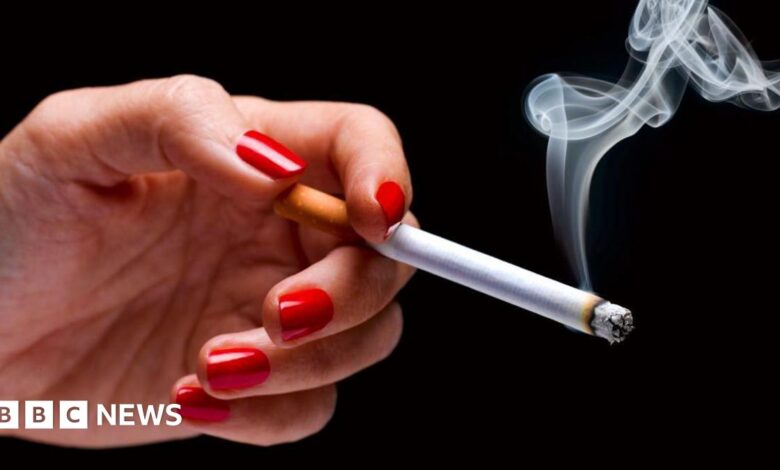Introduction: What Is Smoking and Why People Do It

Smoking, in its simplest form, involves inhaling and exhaling the smoke of burning substances—most commonly tobacco. It’s been around for centuries, originally used in religious rituals, medicine, and later evolving into a recreational habit. Today, despite countless health warnings, millions of people still light up daily.
So why do people still smoke? The reasons vary. For some, it starts with curiosity or peer pressure. Others turn to cigarettes for stress relief or to feel socially connected. Many smokers claim it helps them relax or concentrate. Unfortunately, what begins as a casual habit often turns into a dangerous addiction fueled by nicotine—a powerful, highly addictive chemical found in tobacco.
The problem is, while the act of smoking may seem harmless at first, the long-term consequences are anything but. And most smokers don’t fully understand the extent of the damage until it’s too late.
The Health Hazards: What Smoking Really Does to Your Body
When you inhale cigarette smoke, you’re not just taking in nicotine. You’re also breathing in over 7,000 chemicals, and at least 70 of them are known to cause cancer. This toxic cocktail can affect nearly every organ in your body, causing diseases that range from annoying to life-threatening.
First and foremost, smoking is a major cause of lung cancer. In fact, about 85% of all lung cancer cases in the world are related to smoking. But it’s not just your lungs at risk. Smoking also increases your chances of developing heart disease, stroke, and chronic obstructive pulmonary disease (COPD). These are not just statistics—they’re real dangers that shorten lives every day.
It doesn’t stop there. Smoking affects your skin, teeth, eyes, and even your brain. Wrinkles form faster, teeth turn yellow, and your risk of cataracts increases. Smokers are also more likely to suffer from anxiety and depression. Essentially, every puff brings you one step closer to serious health issues—and quitting even after years of smoking can drastically reduce your risks.
Secondhand Smoke: Hurting Others Without Meaning To
What many smokers overlook is how their habit affects the people around them. Secondhand smoke—the smoke exhaled by a smoker or emitted from a burning cigarette—is just as toxic as the smoke a smoker inhales directly. And it doesn’t matter if you’re outside or in a ventilated room; the health risks are real.
Children exposed to secondhand smoke are more likely to suffer from asthma, respiratory infections, and ear problems. For pregnant women, it can lead to low birth weight, premature birth, or even miscarriage. And for adults, even occasional exposure increases the risk of heart disease and cancer.
What’s truly unfortunate is that these non-smokers have no choice in the matter. They didn’t light the cigarette, but they’re forced to breathe in the same toxic air. This is one of the strongest arguments against public smoking—and one of the biggest reasons many countries have adopted strict laws to limit where people can smoke.
The Psychological Grip: Understanding Nicotine Addiction

People often say quitting smoking is one of the hardest things they’ve ever done—and that’s not just talk. Nicotine is a powerful psychoactive drug, and its grip on the brain can be incredibly strong. When you smoke, nicotine floods your brain with dopamine, the chemical responsible for feelings of pleasure. Over time, your brain starts to depend on nicotine to feel normal.
The problem is, as your body gets used to nicotine, it starts needing more frequent doses to get the same effect. That’s why many smokers go from one or two cigarettes a day to a full pack or more. When they try to quit, they experience withdrawal symptoms like irritability, anxiety, restlessness, and strong cravings.
Understanding the psychological nature of this addiction is key to overcoming it. It’s not just a physical habit—it’s a deeply wired routine in the brain. That’s why successful quitting often involves more than just willpower. Many people need a combination of therapy, support, and sometimes medication to break free.
The Social & Financial Cost of Smoking
Let’s talk about something a lot of people ignore: the financial and social cost of smoking. First, the money. Smoking isn’t cheap. A pack-a-day habit can cost hundreds of dollars per month—or thousands per year. Over a decade, you could easily spend enough to buy a car, pay off a loan, or go on a dream vacation.
Then there’s the social angle. As smoking becomes less socially acceptable, many smokers find themselves excluded from gatherings or forced outside in all weather just to satisfy their craving. Relationships can suffer, especially if your partner or family members are non-smokers. Even job opportunities may be affected, as some employers prefer hiring non-smokers due to health insurance costs and productivity concerns.
In the long run, the social and economic downsides of smoking can weigh just as heavily as the physical ones. It’s not just a matter of health—it’s a matter of lifestyle.
Quitting: Is It Too Late to Stop Smoking?
The best time to quit smoking was yesterday. The second-best time is right now. And the good news is, it’s never too late. No matter how long you’ve been smoking, your body starts to heal as soon as you stop. Within just 20 minutes, your heart rate and blood pressure begin to drop. After a few days, carbon monoxide levels in your blood return to normal. In a few months, your lung function improves.
Over the years, the risk of major diseases like heart disease and cancer continues to decrease. Many former smokers say their energy improves, food tastes better, and they even feel younger.
There are many tools available today to help you quit: nicotine patches, gums, lozenges, medications, therapy, and support groups. The key is to find what works for you and stick with it. Quitting might be hard—but living with the effects of smoking is much harder.
Conclusion: Think Before You Light Up
Smoking might seem like a small habit, but its impact is huge—on your body, your mind, your wallet, and the people you care about. Whether you’re a casual smoker or someone who’s been hooked for years, the facts are clear: smoking shortens your life, hurts your health, and steals your freedom.
But there’s always hope. Millions of people have quit smoking, and you can too. The road might be tough, but the destination—a longer, healthier, happier life—is worth every step. So the next time you reach for a cigarette, pause for a moment and ask yourself: is it really worth it?
YOU MAY ALSO READ
Smoking



